Zu: Warriors of the Magic Mountain (1983)
Directed by: Tsui Hark
Written by: Shui Chung-yuet
Starring: Adam Cheng, Moon Lee, Sammo Hung, Yuen Biao
AKA SHU SHAN: XIN SHU SHAN JIAN KE [MOUNT ZU: NEW HEROIC SWORDSMEN OF MOUNT ZU], ZU: TIME WARRIOR
HONG KONG
AVAILABLE ON BLU-RAY: 20TH APRIL, from EUREKA ENTERTAINMENT
RUNNING TIME: 98 mins/93 mins
REVIEWED BY: Dr Lenera
The Zu mountains are located in the Sichuan province of China. Those who control them, control the area. Fleeing from his own side after his commanding officers order him executed for failing to obey contradictory orders, young scout Di Ming-qi stumbles upon the hidden temple of the Evil Sect and encounters mystic swordsman Ding-Yin who’s on a quest to to destroy the Evil Disciples, aided by Hsiao-Yu and his student Yi-Chen, but the Blood Demon. The magician Long Brows arrives in time to capture the Blood Demon within his Sky Mirror, but this will only hold it for 49 days. Long Brows tells Dik to go to Heaven’s Blade Peak and find the goddess Li I chi whose Twin Swords can defeat the Blood Demon. But then Hsiao-Yu is poisoned by the Blood Demon and will die within ten days if not healed by the Countess of The Celestial Fort Of The Jade Pool….
While there had most definitely been films in the wuxia genre before, involving martial artists and monks taking on ghosts and demons with a combination of martial arts and Eastern beliefs,it was Zu: Warriors Of The Magic Mountain that really kickstarted the genre and gave birth to the likes of A Chinese Ghost Story, Crouching Tiger Hidden Dragon, and even Big Trouble In Little China. And, after viewing Eureka’s Blu-ray of the film and left totally exhausted but in a good way, I’m still not sure that its been matched. Yes, special effects have improved, plots have been far more coherent, characters have been deeper – but has there been another wuxia film that has as much delirious energy and invention? Warriors leap, fly and bounce off mountains and walls like pinballs before striking seriously cool poses; ghostly Jawa-like figures attack from giant clay jars; black cloaked demons multiply and attack with flags; somebody holds a giant rock from flying away with his rope-like eyebrows; the list goes on, and yet despite the constant motion and constant crazy visuals, it’s all done with a light touch and often a genuine sense of humour so that the sensory overload never quite gets too much even if, trying to watch it now with a critical eye and not get too drawn in, there are times when the story could be clearer. Of course I personally hold it in great regard because I remember well my first wide-eyed viewing on Channel 4, the first of five Hong Kong movies that they showed. Previously the Beeb had aired The Butterly Murders [also from director/producer Tsui Hark, but a film that has never had a home media release outside of Asia for some reason] and A Chinese Ghost Story, both of which I loved, but it was Channel 4’s lot that truly made me a fan.
It was loosely based on a series of novels by Li Shoumin called ‘The Legend Of Mount Zu’ which ran to a whopping 64 entries, and, while Hark was also influenced by previous wuxia films, he wanted to outdo them for spectacle, even hiring some of the technicians who worked on Star Wars to help with the special effects. While Shui Chung-yuet is credited with the screenplay, it was actually constructed by many hands. The tough shoot full of 30-hour days took over a year – insanely long for a Hong Kong film – and eventually Golden Harvest, worried that Hark wasn’t going to make the release date, took it off his hands and put together their own edit, probably losing a few scenes and certainly with some footage uncompleted. In particular, he wanted to bookend the film with modern-day sequences. Zu: Warriors of The Magic Mountain was reasonably successful in Hong Kong but a smash in Japan. Not long after, Hark sought overseas funding to complete the filming – kind of – for the Western release. While the ‘film proper’ didn’t get any attention, Hark was at least able to shoot modern-day footage, though Raymond Chow, head of Golden Harvest, decided that parts of the story needed to be changed. Hark went ahead and expanded material which Chow gave him but didn’t officially approve this version. This Zu: Time Warrior cut nonetheless deserves at least some respect as an ‘official’ re-edit, and I’m rather fond of it. The story was altered to have a strong romantic element, and bits of the Hong Kong version were dubbed so the original meaning was altered, though it’s possible that the cuts were done without his permission. I’ll go into more detail about this cut later on. However, it wasn’t the success in the West Hark expected it to be and was not really widely seen. In 2001 Hark produced, directed and co-wrote The Legend Of Zu, a semi-remake that proved to be inferior despite employing much CGI.
Opening narration tells us of this mountain that’s seen much conflict,”culminating in the legend of the heroic swordsmen of Zu Mountain”, while we travel through clouds and up and down a mountain [yes it’s obviously a model, but does it matter?], while some of the credits hit the screen almost as if they’re in 3D. The title here translates as: Mount Zu: New Heroic Swordsmen Of Mount Zu, which is rather unwieldy in English. Yuen Biao as Di gets a great entrance, somersaulting off his horse. He doesn’t need to do it, but it looks cool. He’s a scout for the West Zu clan which in a war with the East Zu, but when his two leaders can’t decide whether to attack by land or by sea, he gets fed-up and, during a battle where Biao jumps on somebody who’s fallen over, stands on him then leaps onto a horse , knocking its rider off as he does [I’m not joking], does a runner. He soon runs into Chang-Mei, an East Zu soldier. After some fighting they go on the run together and discover that they’re virtually neighbours. When caught in the middle of another battle, they have to pretend that they’re fighting each other. There’s clearly a message to all this, with Hark and his writers clearly showing their hatred of war, the ineptitude of the ruling officials, and how underneath petty differences both sides of the battlefield are the ultimately the same and the soldiers really don’t want to fight. Despite Hark’s sincerity, we don’t feel that we’re being preached to, which in my view is just how it should be [modern Hollywood take note]. This part of the film reaches an hilarious, yet pointed, peak in which the two decide to try and play dead in a battlefield full of what are supposedly corpses, but soon discover that over half of the fallen soldiers are also playing dead! I’d have been content if the rest of the film had just consisted of Ting and Chang bonding and trying to survive. After all, Peking Opera childhood buddies Baio and Sammo Hung have an effortless chemistry. But no, from now on things get crazy and there’s no let up!
Ting falls off a cliff and into a fantastical world, one of Hark’s typical ‘fishes out of water”. He’s saved from a weird flying demon with glowing eyes by Ting-Yin, a swordsman wielding a flying sword who’s on a quest to destroy evil. Ting wants to be Ting-Yin’s disciple, but Ting’s not interested. He’s not even that confident in what he’ s trying to do, saying to Di, “neither you nor I have an ability to cause change” and that it’s best to hide from other humans. To assist Ting-Yin are the Zen Buddhist priests Hsiao-Yu and his student Yi-Chen, but Ting-Yin and Hsiao-Yu don’t like each other, leading to lots of bickering. Their dialogue reminds me of some of the exchanges in the Marvel movies, but less smarmy. They’re then sent on a quest by Long Brow (Hung again), a priest who has super long eyebrows and can do a hell of a lot with them, to retrieve the Twin Swords on Heaven’s Blade peak, the only weapon that can defeat the Blood Demon, the main source of evil in the land. This being, who might just one of my favourite villains of all time even if it doesn’t possess any personality, can adopt several forms; a large red sheet where you can sometimes glimpse a skill behind the material which also breathes fire; a large mound of skulls with moving claws coming out of it; folk that it possesses; even very briefly a severed head that flies out of the water, though if you blink you might piss it. Understandably the Blood Demon is hard to defeat despite Long Brow and his Grand Sky Mirror, and our good guys are soon sidetracked when Hsiao-Yu is poisoned by the Blood Demon. They have to travel to The Celestial Fort Of The Jade Pool’ to heal them, but the Princess and her aides don’t take kindly to these male visitors who could be bringing evil with them, and one of these male visitors being an ex-boyfriend. While this portion of the story slows down, it’s still continual combat and movement before our good guys can leave, but will all of them survive?
Eventually things become almost expressionistic as the war between good and evil reaches genuinely mythical proportions, though the special effects couldn’t help but let the side down here even in 1983, with characters in nice blue outlines. Star Wars is clearly an influence throughout; there are even some light sabers [pretty much] towards the end. Of course the usual Hong Kong low budget would probably have been equivalent to no more than lunch money on the set of the George Lucas production, but Hark gets away with a lot due to his mastery of film-making, utilising every technique from editing to particular angles to reverse photography to make up from the primitive technical aspects. Opticals vary in quality, and there’s a particularly poor ice effect, but most of the fight scenes come off fine. One jaw-dropping highpoint is when two characters in combat suddenly start flying around on large animal statues. We barely get a chance to see the stone things move, but the cutting and the angles provide enough impression that they’re flying anyway. One thing I love is that, in spite of all the magic, the comedy of human errors is always there. These characters fly in the air, fight demons, and do outrageous acrobatics, yet bump their noses, can’t swim, and get smacked by pretty girls.And in amidst all this there’s a bit of heart and some decent, if usually comic, characterisation, even if the most important thing is moving on to the next set piece. When Ting-Yin, played by Adam Cheng as the archetypal lonely, bitter swordsman, finally makes Ting his student,we feel it because he’s finally grown to care about Ting and wants him to survive. Yi-Chen is funny because he always seems to say whatever comes into his head. “I became a monk because of you women” is not what you should be saying when confronted with loads of the fairer sex wielding weapons.
16-year old Moon Lee, Judy Ongg and Bridget Lin [soon to become associated with this genre with her iconic role probably being The Bride With White Hair], are in no way subservient to the men and certainly don’t need to be rescued. Hong Kong cinema was ahead of the game in terms of skilled, tough female heroes for some time. Baio does his usual child-like ‘innocent in a tough world’ act while Mang Hoi is a good comic foil for him. I can just about detect a parallel with the situation China was in at the time. The older leaders of the three Chinese states of Communist mainland China, Taiwan an British-ruled Hong Kong were always at odds, and many were hoping that new, young leaders would take over and could come to some sort of agreement. Even if I’m barking up the wrong tree, there’s no mistaking the plea for unity and the neccessity of the old having to make way for the new, not to mention the attack on warfare, all three presented in an often comical way which never takes away from the fun, even though I’m always oddly moved by the final scene which – believe it or not- bravely suggests a futility to everything that’s been achieved. Some aspects could be better; the music score by Kwan Sing-yau and Tang Siu-lam in particular being only adequate [just think how a rousing theme would have lifted the proceedings even higher], and some choppy editing and one major death taking place off screen are evidence of the rushed release, but Hark’s barmy, kinetic [as kinetic as any modern day superhero movie] effort remains a fantasy film with a real sense of fantasy, a real sense that anything could happen, that leaves all the Hollywood efforts of the time standing, making them come across as dull and bland by comparison. In fact, I don’t think it was really bettered until Peter Jackson treated us with The Lord Of The Rings trilogy.
This has always been a colourful looking film. Eureka’s release accentuates the darker hues slightly more than the Hong Kong Legends DVD, but this creates more balance and the bright bits shine even brighter. Grain is evenly managed and detail is very clear; the down side of this is that wires that weren’t visible before sometimes are now. But a terrific restoration nonetheless.
In place of the Hong Kong Legends commentary with Bey Logan and Tsui Hark which, if I remember correctly, was not great due to Hark being terse, we have one from Eureka stalwart Tony Rayns. He doesn’t quite talk through all the film, which jumps forward a bit quite early on if you play the commentary. He’s not at all scene specific, and I’d have liked to have heard some stuff on the special effects, Rayns nonetheless goes into immense detail on Hark’s career especially in the lead-up to this film, and its conception, clarifying some information I didn’t know about its writing, though he’s not sure whether Hark wrote and directed the export cut or not – I’ve always thought he did from a synopsis by Chow, but maybe I was wrong.
The Hong Kong Legends only included the additional footage shot for the Zu: Time Warriors version, the very different edit of the film influenced perhaps by Somewhere In Time, and which in turn possibly influenced The Forbidden Kingdom. Eureka give us the whole film, so let’s take a look at it. The first 25 minutes involve Biao as Ti, a college student in Canada who, after visiting an exhibition of 10th century Chinese art at a local museum, becomes enthralled with a painting depicting gods and goddesses and one goddess in particular that really fascinates him, Morning Flower, who once was human until her lover went off to war. Everyday she would climb the Magic Mountain to pray for his safe return. The goddesses felt pity for her and they made her one of their own. Ti then falls for a young woman played by Moon Lee, who’s an absolute dead ringer for Morning Flower, and when upon closer examination of the painting he notices that Morning Flower’s lover bares a rather striking resemblance to himself. He then visits a psychic who tells him, “Your past life cannot be separated from your present. You have to go back into the past and forget about the present”. The romance proceeds extremely quickly, and some of the dialogue is poor or just sounds slightly off even if you accept the dubbing; I always chuckle at the cries of, “that was great, see that move, some move alright”, from people watching Ti execute a very unconventional move during fencing, and a move that looks like the only one not actually executed by Baio seeing as there are edits in it. But Ti having made some enemies by winning this contest does lead to a reasonable fight scene soon after with Biao facing off against three others.
Ti then accidentally crashes his car and wakes up in medieval China, and it’s here that the movie’s original footage begins, though the opening section with the warring factions is cut to almost nothing, replaced by an encounter with ‘The Old Man Of The Mountain’ who gives him some important information before we get back into the original movie, which then largely plays out unaltered except for some of the dialogue being changed so that Ti is searching for Morning Flower, and the truncation of the climax. I do wonder why the decision was made to play up the love angle seeing as Baio and Lee’s characters spend hardly any time together in the original version, even though one can understand Hark thinking that a modern-day framing story would be good to get viewers settled before the period insanity begins rather than us being hurled straight into it. But this still remains one of the more interesting alternate versions out there of a Hong Kong film, so kudos to Eureka for including it for the first time on disc, even if the SD transfer is of a rather damaged print with lines and specks sometimes present.
After the alternate opening credits which have English translations, we have the Tsui Hark episode of Son of the Incredibly Strange Film Show, a TV sequel series where, as before, Jonathan Ross investigated weird and wonderful films and their makers. It’s very short as this episode’s second half was about the late Stuart Gordon. But it’s a nice watch as Ross briefly delves into Hong Kong horror and fantasy before focusing mainly on Hark, seen on the set of A Better Tomorrow 3 and talking to Ross about how he and his friends made films as kids, and some of his own movies from which we see some clips. I’m sure I’m not alone in hoping for quality Blu-ray releases of Peking Opera Blues and A Chinese Ghost Story.
This is merely an introduction to the new hour-long interview with a much older Hark where he answers questions mostly concerning Zu:Warriors Of The Magic Mountain at great length and usually with seeming honesty. He seems happy to be here, even when he’s asked about when he supposedly locked cast and crew inside a studio for a whole night. We also hear of how he found himself working for two companies at the same time, and how he was often left to work out how to do the special effects himself. He’s occasionally a tad cagey, but overall this is a good interview. Then follow the three Hong Kong Legends chats with Baio, Lee and Hoi. Baio relates how hard the shoot was with people sleeping in dormitories by the set, scenes often taking so long to do that cast members would fall asleep while on their wires, and how it’s still a favourite of his. Lee, after an awkward beginning, really settles in to talking about how she was still at school when she made the film and would do her homework on set, how she was overjoyed to be working with so many stars, and her [then] current Chinese dancing project. And Hoi goes more into his general early career, commenting on how the style of action has evolved, how he had no idea he’d win an award for his role in Police Assassins, and how Huang Jang Lee kept kicking people for real.
If you’re not already a lover of Hong Kong cinema, Zu: Warriors of the Magic Mountain might make you one. Eureka present this fantasy classic in its definitive home viewing release with lots of special features. Highly Recommended.
SPECIAL FEATURES
*Limited Edition O-CARD with new artwork by Darren Wheeling [2000 units]
*Limited Edition collector’s booklet featuring new writing on the film [2000 units]
*1080p presentation on Blu-ray from a brand new 2K restoration
*Cantonese and English soundtrack options, original monaural presentations
*Newly translated English subtitles
*Brand new and exclusive feature length audio commentary by critic and Asian cinema expert Tony Rayns
*Alternate opening credits, restored to their original Western presentation
*Zu: Time Warrior [93 mins] – the export cut of the film produced for European theatres, featuring a wraparound segment with Yuen Biao as a modern-day college student who is transported, Wizard of Oz style, to 10th Century China
*Tsui Hark – episode of Son of the Incredibly Strange Film Show originally aired on British television in 1989 [21 mins]
*Brand new and exclusive interview with Tsui Hark – a lengthy and in-depth interview with director Tsui Hark filmed in 2020 exclusively for this release [61 mins]
*Archival Interview with Yien Biao [12 mins]
*Archival interview with Moon Lee [20 mins]
*Archival Interview with Mang Hoi [20 mins]
*Trailers

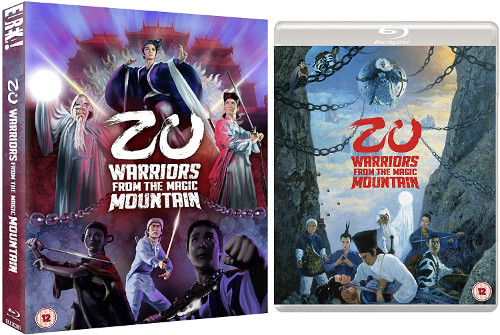
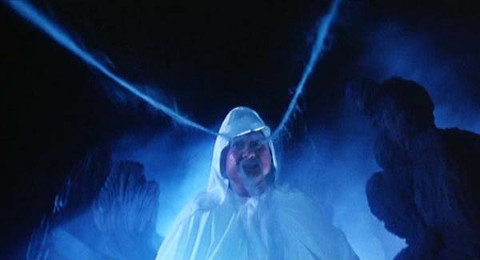
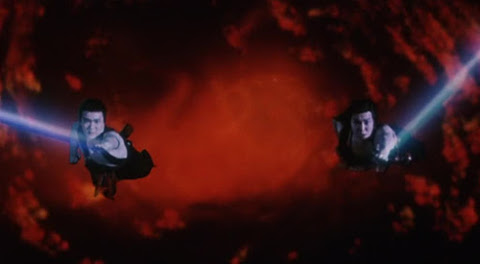



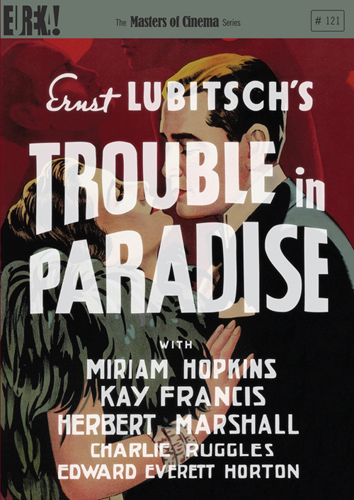
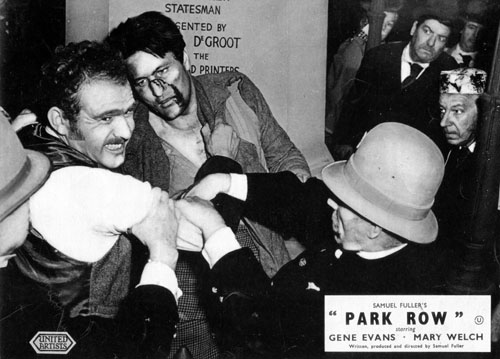
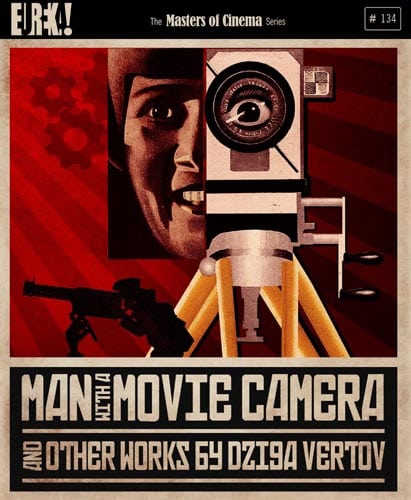
Be the first to comment